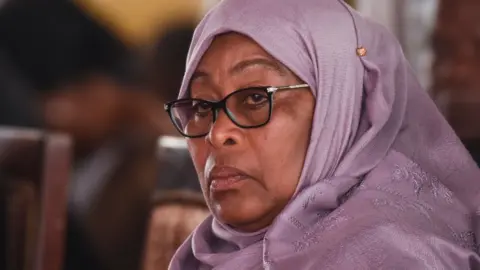Tanzania’s ability to secure funding from international institutions could face hurdles following last month’s disputed election, President Samia Suluhu Hassan warned on Tuesday.
The president spoke while swearing in her new cabinet, acknowledging that the country’s recent political turmoil may have dented its global reputation.
Hassan, 65, who was declared the winner of the October vote by a wide margin, did not specify what had harmed Tanzania’s image. The election was marred by clashes between security forces and supporters of opposition candidates who were excluded from the ballot.
Rights groups, opposition parties, and the United Nations have estimated that hundreds of people were likely killed, although the government rejects these figures as exaggerated.
“Most of the time we depend on the outside. Loans from various international institutions, international banks, but what happened in our country has destroyed our image a little,” Hassan said. “That might reduce our reputation to get those loans easier as we did in our first term. The bad image we gave ourselves might take us back.”
Observers from the African Union said the vote was not credible, documenting instances of ballot box stuffing. The government has dismissed such criticism and maintains that the election was conducted fairly. Hassan has pledged to investigate election-related violence and recently offered condolences to bereaved families, marking her most public acknowledgment of the crisis, which is considered the country’s most serious political unrest in decades.
During Tuesday’s swearing-in ceremony in Dodoma, Hassan encouraged ministers to focus on raising funds from domestic sources rather than relying heavily on external borrowing. Tanzania’s finance ministry had previously planned to borrow 8.7 trillion Tanzanian shillings, approximately $3.6 billion, in the 2025–26 fiscal year, up from 5.13 trillion shillings in planned external grants and concessional loans for 2024–25.
The president’s comments signal a cautious approach to international finance, reflecting concern that the political crisis could complicate Tanzania’s ability to secure external support in the years ahead.



















